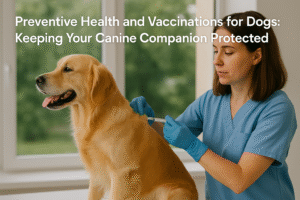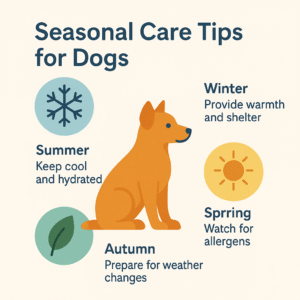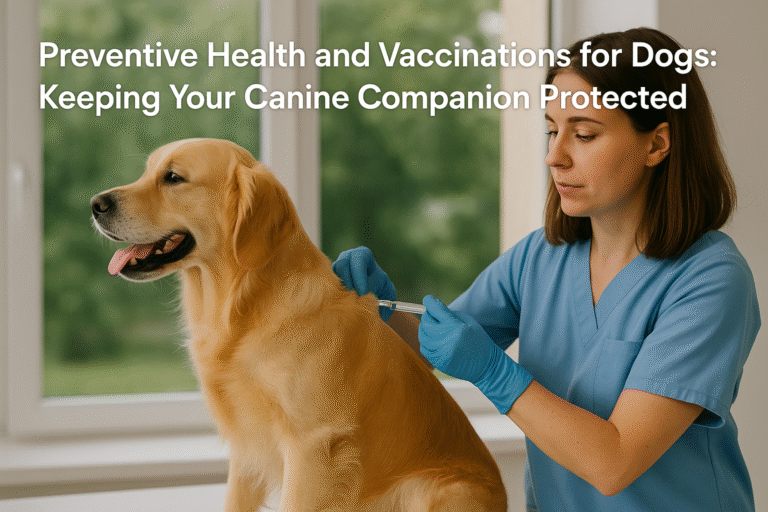Keeping your dog healthy isn’t just about treating illness when it arises; it’s about preventing problems before they occur. Preventive health measures — especially vaccinations — are the foundation for protecting your dog from deadly diseases and ensuring a long and happy life.
Why preventive health matters
Preventive health refers to routine care and measures that stop diseases or detect them early when they’re easier to treat. For dogs, this includes vaccinations, regular wellness exams, parasite control, dental care, nutrition, exercise, grooming, and at-home monitoring.
How vaccines work
Vaccines expose your dog’s immune system to inactivated or weakened forms of viruses or bacteria, allowing it to develop protective antibodies. According to veterinary experts, vaccines do not make pets sick and there is little evidence to support claims they are dangerous. They are safe and cost-effective because the diseases they prevent can be fatal and expensive to treat.
Core vaccines for dogs
Core vaccines are recommended for all dogs regardless of lifestyle because they protect against highly contagious, life-threatening diseases. The core vaccines include:
. Rabies – Legally required in most regions; protects against a fatal disease transmitted through bites.
. DHPP – A combination vaccine for Distemper, Hepatitis (adenovirus), Parvovirus and Parainfluenza.
. Leptospirosis – In some areas this is considered core because leptospira bacteria are widespread in water and soil and can infect humans.
Non-core vaccines
Non-core vaccines are recommended based on a dog’s lifestyle and risk of exposure. These include:
. Kennel cough – For dogs that attend daycare, boarding, groomers or dog parks.
. Lyme disease – For dogs in regions where ticks carry the bacteria.
. Canine influenza – For dogs that frequent boarding kennels, shows or dog sports.
. Leptospirosis – In areas where wildlife exposure is high (if not considered core).
Discuss your dog’s lifestyle with your veterinarian to determine which non-core vaccines are appropriate.
Puppy vaccine schedule
Puppies receive maternal antibodies from their mother’s milk, but this protection fades by about six to eight weeks of age. To build lasting immunity, puppies should start vaccinations around eight weeks and receive boosters every three to four weeks until they are about sixteen weeks old. If boosters are missed by more than six weeks, the series must start over. Your vet may also recommend initial protection for Bordetella, Lyme or influenza based on risk.
Adult and senior dogs
Adult dogs need regular booster shots to maintain immunity. Most core vaccines are boosted every one to three years depending on vaccine type and local regulations. Annual wellness exams allow your vet to assess vaccine needs, conduct bloodwork, examine teeth and check for early signs of disease. Senior dogs (ages seven and older) should have veterinary exams every six months to monitor age-related conditions and adjust vaccination schedules as their immune system weakens.
Parasite prevention
Vaccines protect against viruses and bacteria, but dogs are also at risk of parasites. Year-round flea and tick prevention reduces the risk of Lyme disease and other tick-borne infections. Heartworm disease, transmitted by mosquitoes, can be fatal; monthly heartworm preventives and annual testing are critical. Regular deworming helps control intestinal worms such as roundworms and hookworms, which can also infect people. Talk to your vet about the best preventive products for your dog’s lifestyle.
Nutrition, exercise and dental care
A balanced diet provides your dog with the proteins, fats, carbohydrates, vitamins, minerals and water needed for a healthy immune system. Regular exercise maintains a healthy weight and supports cardiovascular and mental health. Dental disease affects the majority of dogs; daily tooth brushing and routine dental cleanings can prevent plaque and tartar buildup. Grooming and regular bathing prevent skin infections and allow you to check for lumps, bumps or parasites.
Home monitoring and early detection
Preventive care extends to what you do at home. Monitor your dog’s appetite, energy level, weight, urine and stool quality. Check ears, eyes and mouth regularly and note any changes in behaviour. Catching signs of illness early – such as lethargy, vomiting, coughing or lameness – can make treatment more successful and less expensive.
Conclusion
Prioritising preventive health ensures your dog enjoys a long, active and disease-free life. Keep your dog up to date on core and lifestyle-appropriate vaccines, maintain parasite control, provide a balanced diet and regular exercise, and schedule routine veterinary check-ups. By taking proactive steps now, you’ll minimise unexpected illnesses and ensure your best friend stays by your side for years to come.
For personalised vaccination schedules or to book a wellness exam, Contact us. Your veterinarian can help tailor a preventive care plan that meets your dog’s individual needs.













